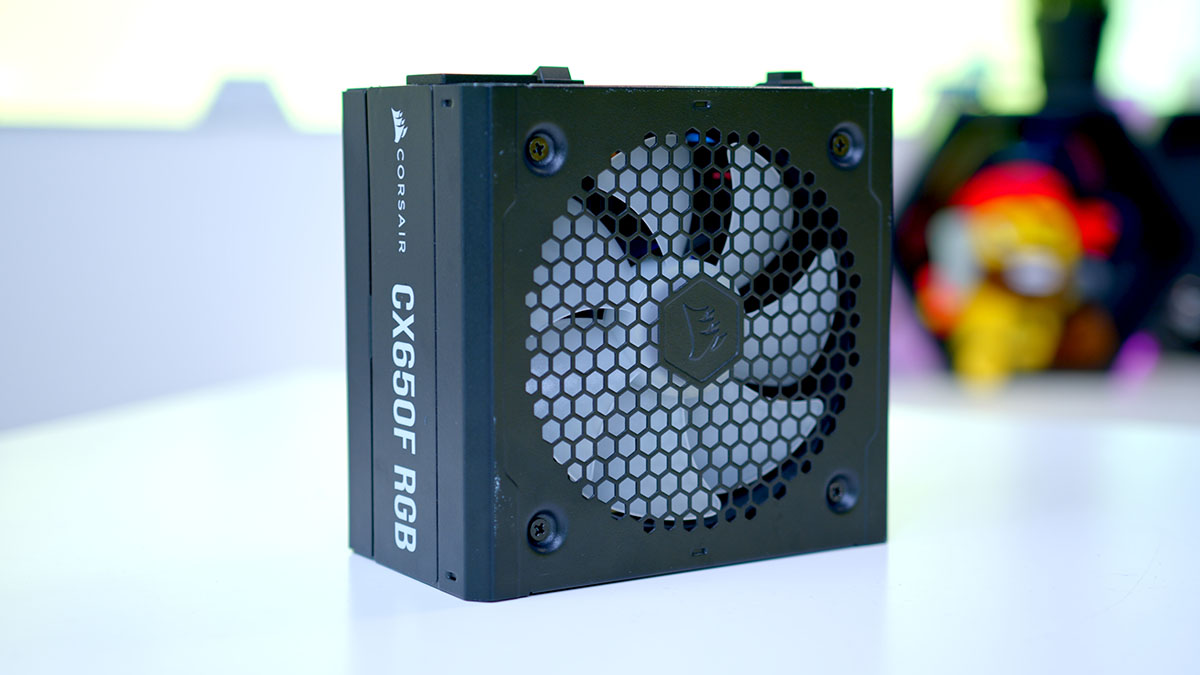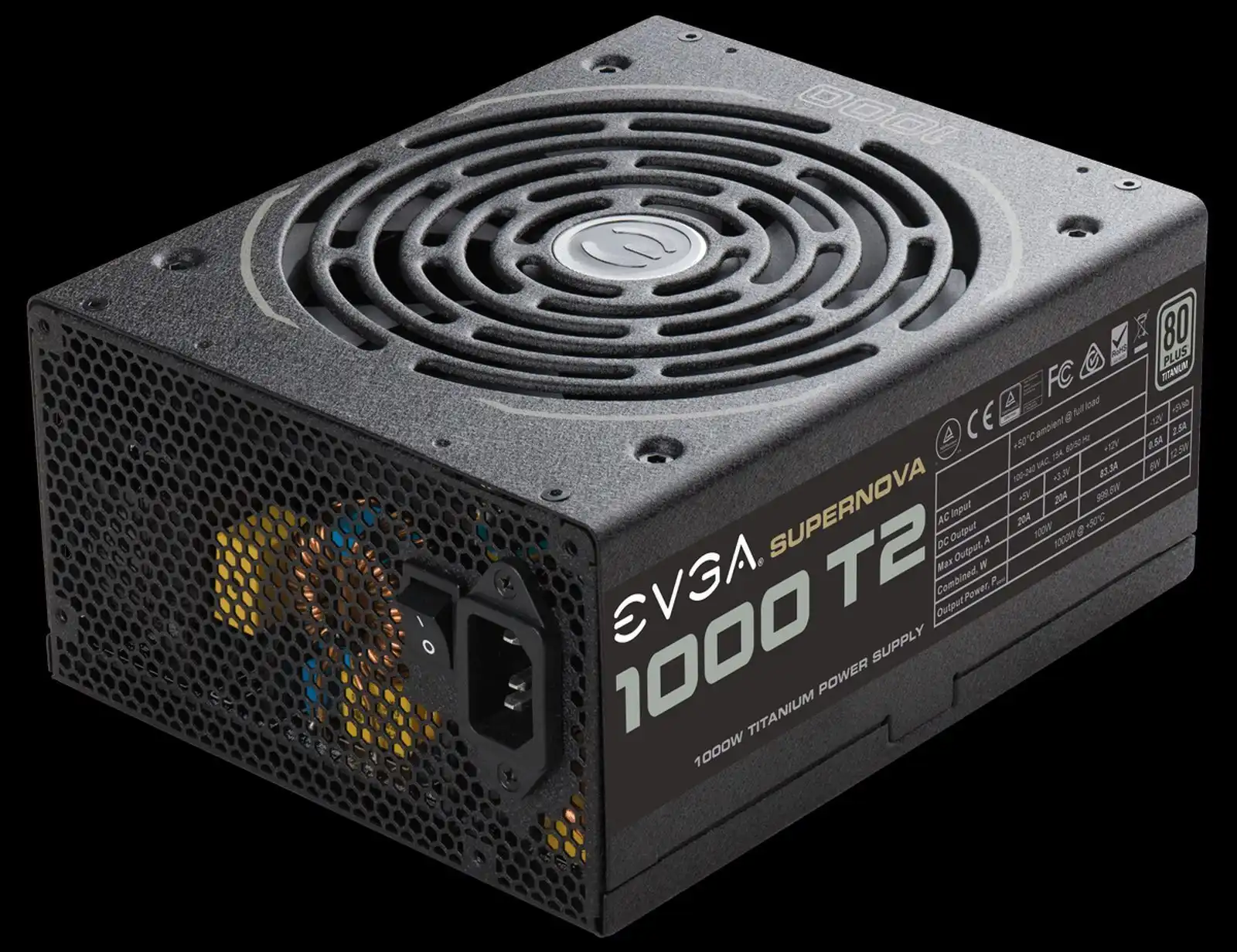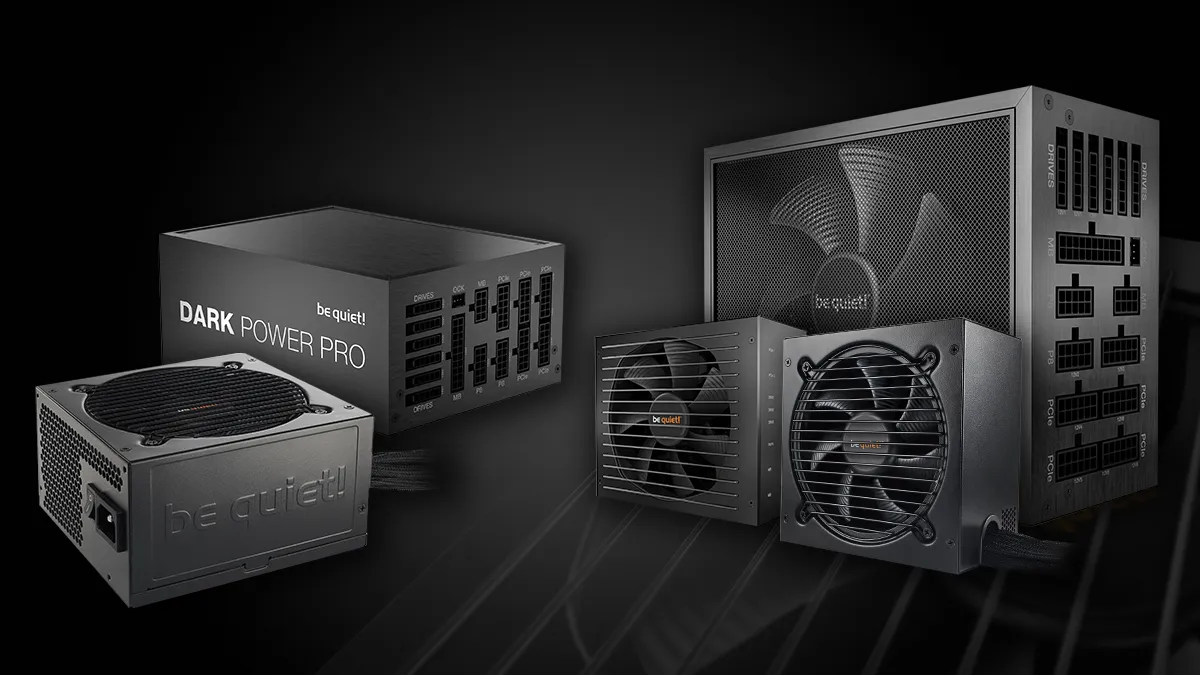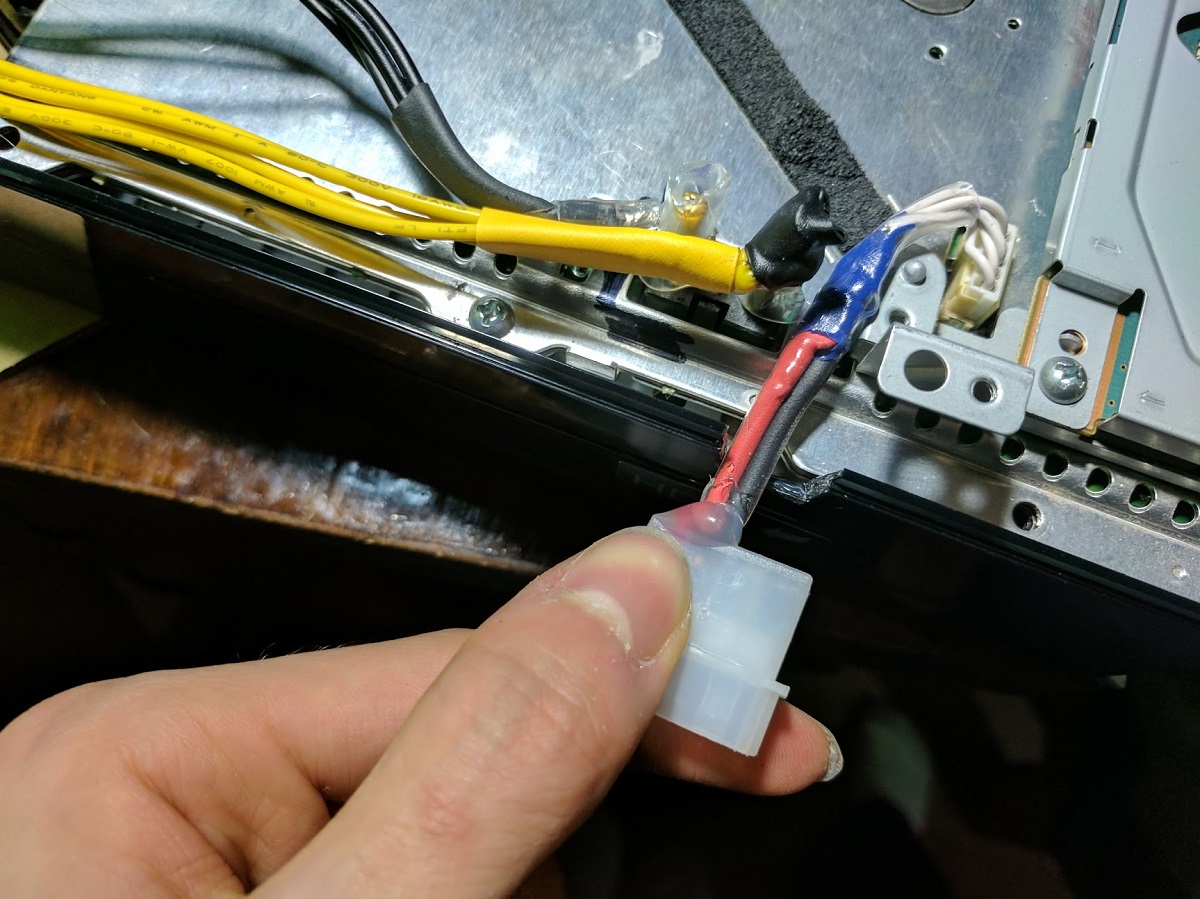Introduction
Gaming has become increasingly popular, with millions of people worldwide dedicating their time to this exciting hobby. Whether you’re a casual gamer or a serious enthusiast, one crucial component that plays a significant role in your gaming experience is the Power Supply Unit (PSU). But what exactly is a PSU, and why is its wattage important?
A PSU, or Power Supply Unit, is an essential part of a computer system that converts AC power from the wall outlet into DC power to supply the necessary voltage and current to the various components of the computer. In gaming systems, the PSU has an even more critical role, as it not only ensures stable and reliable power delivery but also supports the demanding performance requirements of high-end graphics cards, processors, and other gaming peripherals.
Understanding the wattage of a PSU is key to ensuring the proper functioning of your gaming system. Wattage refers to the maximum power output that a PSU can provide to your components. It determines the overall capacity of the PSU to handle the power demands of your gaming system, including the graphics card, CPU, RAM, storage devices, and other peripherals.
Choosing the right PSU wattage for gaming involves considering several factors, including the power requirements of the individual components, the level of overclocking, and the number of additional accessories connected to the system. It’s crucial to find the perfect balance between sufficient power delivery and avoiding excessive wattage that could lead to inefficiencies and unnecessary expenses.
In this guide, we will delve into the factors that determine PSU wattage for gaming, provide an overview of the average wattage recommendations for different gaming configurations, discuss the impact of overclocking and additional accessories, and offer tips on how to calculate the appropriate PSU wattage for your specific gaming system.
By the end of this article, you will have a clear understanding of the recommended PSU wattage for gaming and the knowledge to make an informed decision when choosing a power supply for your gaming rig. So let’s dive in!
What is a PSU (Power Supply Unit)?
A PSU, or Power Supply Unit, is a critical component of a computer system responsible for supplying power to all the internal hardware components. It is essentially the lifeline that ensures the smooth functioning of your gaming rig. The PSU takes the AC power from the wall outlet and converts it into the appropriate DC voltage levels required by the components.
When it comes to gaming, the power demands can be significantly higher compared to regular computer usage. High-performance graphics cards, CPUs, and other gaming peripherals require a steady and reliable power supply to operate optimally. A PSU with insufficient wattage can lead to performance issues, instability, and even system crashes.
PSUs come in various form factors, such as ATX, SFX, and TFX, to fit different computer case sizes. They also come in different wattage options, ranging from as low as 300 watts to well over 1000 watts. The wattage rating of a PSU indicates its maximum power output capacity.
Aside from wattage, PSUs are also classified based on their efficiency ratings. The efficiency of a PSU refers to how effectively it can convert AC power into DC power. Higher efficiency ratings, such as 80 Plus Bronze, Silver, Gold, Platinum, or Titanium, indicate better energy conversion and less wasted power as heat.
PSUs also include various safety features to protect your system from electrical hazards. Overvoltage protection (OVP), undervoltage protection (UVP), overcurrent protection (OCP), and short circuit protection (SCP) are common safety measures implemented in modern PSUs.
Modular and non-modular PSUs provide different levels of cable management. Modular PSUs feature detachable cables, allowing for better organization and improved airflow. Non-modular PSUs come with fixed cables, which can lead to a messy build if not managed properly.
When selecting a PSU for your gaming system, it is crucial to consider the power requirements of your components and ensure that the PSU can deliver the necessary wattage. It is recommended to choose a PSU with a slightly higher wattage than the estimated requirements to allow for future upgrades and overclocking.
In the next sections, we will explore the factors that determine the appropriate PSU wattage for gaming and provide average wattage recommendations for different gaming configurations. We will also discuss the impact of overclocking and additional accessories on PSU wattage and share tips for calculating the ideal wattage for your specific gaming system.
Understanding Wattage
When it comes to choosing the right PSU for your gaming system, understanding wattage is crucial. Wattage refers to the maximum power output that a PSU can provide to your components. It determines the overall capacity of the PSU to handle the power demands of your gaming system and ensures stable and reliable power delivery.
In simple terms, wattage is a measure of the amount of electrical energy consumed or generated per unit time. The power requirements of your gaming system depend on the individual components it comprises, such as the graphics card, CPU, RAM, storage devices, and other peripherals.
Each component has a specified power requirement, usually measured in watts. This power requirement can vary significantly depending on the model and performance level of the component. For example, a high-end graphics card may require more power compared to a mid-range card.
It’s important to note that the power requirements of components are not fixed and can vary depending on their usage. During intense gaming sessions or tasks that put heavy load on the hardware, the power consumption of certain components, particularly the graphics card and CPU, can increase significantly.
When choosing a PSU, you should aim for a wattage that can comfortably handle the peak power demands of your gaming system. This ensures that the PSU does not get overloaded, preventing overheating and potential damage to the components.
It is worth mentioning that the actual power consumption of a component can be lower than its specified power requirement. Manufacturers often provide a maximum power requirement to account for potential variations in power delivery and to ensure compatibility with a wide range of systems.
Additionally, PSU wattage is not the sole determinant of power efficiency. A higher wattage PSU does not necessarily mean better efficiency. Efficiency is indicated by the PSU’s efficiency rating, such as 80 Plus Bronze, Silver, Gold, Platinum, or Titanium. Higher-rated PSUs are more efficient, meaning they convert a higher percentage of the input power into usable DC power while wasting less energy as heat.
In the next sections, we will explore the factors that determine the appropriate PSU wattage for gaming and discuss average wattage recommendations for different gaming configurations. We will also cover the impact of overclocking and additional accessories on PSU wattage and provide guidance on calculating the ideal wattage for your specific gaming system.
Factors that Determine PSU Wattage for Gaming
Choosing the right PSU wattage for your gaming system involves considering several factors that contribute to the overall power requirements. By understanding these factors, you can ensure that your PSU is capable of delivering adequate power to your components without running the risk of overload or instability. Here are the key factors that determine PSU wattage for gaming:
- Graphics Card: The graphics card is often the most power-hungry component in a gaming system. High-performance graphics cards, especially those designed for gaming at higher resolutions and with advanced features like ray tracing, require substantial power. When selecting a PSU, consider both the maximum power requirement of your graphics card and any potential future upgrades.
- CPU (Processor): The CPU is another component that can have a significant impact on PSU wattage. High-performance gaming CPUs, especially when overclocked, can draw a substantial amount of power. Pay attention to the power requirements of your CPU, particularly if you plan on overclocking, as this can significantly increase the power consumption.
- RAM (Memory): While RAM doesn’t consume as much power as the graphics card or CPU, it’s still important to consider its power requirements, especially if you have a system with multiple high-capacity RAM modules. Generally, the power consumption of RAM is minimal and can be factored into the overall power estimate for the system.
- Storage Devices: Hard disk drives (HDDs) and solid-state drives (SSDs) require power to operate. However, their power consumption is relatively low compared to other components, and the number of drives in your system typically has a negligible impact on PSU wattage.
- Other Peripherals: Consider the power requirements of other peripherals connected to your gaming system, such as additional storage devices, optical drives, sound cards, and USB devices. While the power draw of these peripherals is usually minimal, it’s essential to account for them when determining overall PSU wattage.
In addition to these component-specific factors, there are a few other considerations that may affect PSU wattage requirements:
- System Load: The intensity of your gaming sessions and the overall load placed on the components can affect their power consumption. If you engage in long gaming sessions or play graphics-intensive games, it’s advisable to choose a PSU with a higher wattage to accommodate potential power spikes.
- Efficiency: PSU efficiency plays a role in determining the power draw from the wall outlet. Higher-efficiency PSUs convert more of the AC power into usable DC power, reducing the overall power requirements. While efficiency doesn’t directly impact wattage, it can affect your energy bills and overall system performance.
- Future Upgrades: If you plan on upgrading your gaming system in the future, it’s a good idea to choose a PSU with a higher wattage than the current requirements. This allows for potential upgrades, such as a more powerful graphics card or CPU, without needing to replace the PSU.
Considering all these factors and calculating the total power requirements of your gaming system will help you determine the appropriate PSU wattage needed to ensure smooth and reliable operation. In the next sections, we will explore average wattage recommendations for different gaming configurations and discuss the impact of overclocking and additional accessories on PSU wattage.
Average PSU Wattage for Different Gaming Configurations
The power requirements of a gaming system can vary depending on the specific configuration and the intended usage. To provide a general guideline for PSU wattage, here are the average recommendations for different gaming configurations:
- Entry-Level Gaming PC: For entry-level gaming systems that consist of a mid-range graphics card and a basic CPU, a PSU with a wattage rating of around 400 to 500 watts should suffice. This range allows for potential power spikes and ensures stable operation without wasting excessive power.
- Mid-Range Gaming PC: A mid-range gaming system, featuring a more powerful graphics card and a higher-performance CPU, will require a PSU with a wattage rating of around 500 to 600 watts. This wattage range provides enough headroom for increased power demands during intense gaming sessions.
- High-End Gaming PC: High-end gaming systems that include top-of-the-line graphics cards, multiple storage drives, and enthusiast-grade CPUs may require a PSU with a wattage rating of 600 watts and above. Power-hungry components, overclocking, and additional peripherals necessitate a higher wattage PSU to ensure stable power delivery.
- Custom Water-Cooled Gaming PC: Custom water-cooled gaming systems generally have high power requirements due to the inclusion of multiple high-performance components, extensive cooling solutions, and RGB lighting. These systems typically require a PSU with a wattage rating of 800 watts or more to handle the extra power demands.
It’s important to note that these wattage recommendations are average guidelines and may vary based on the specific components, overclocking, and additional accessories used in your gaming system. It’s always a good idea to refer to the manufacturers’ specifications for each component to determine their power requirements.
Additionally, future-proofing your gaming system by choosing a higher wattage PSU can provide peace of mind and accommodate potential upgrades or changes to your system down the line. This can help you avoid the need for a PSU upgrade in the near future.
Ultimately, it’s important to strike the right balance between sufficient power delivery and avoiding excessive wattage. Choosing a PSU with a wattage rating that aligns with your gaming configuration and usage will ensure reliable and efficient power supply to your components, enhancing the overall gaming experience.
In the following sections, we will explore the impact of overclocking and additional accessories on PSU wattage. We will also provide guidance on how to calculate the ideal PSU wattage for your specific gaming system.
Overclocking and Additional Accessories
Overclocking your CPU and GPU is a common practice among gamers seeking to maximize performance. By increasing the clock speed and voltage of these components, overclocking can lead to higher frame rates and smoother gameplay. However, it’s important to consider the impact of overclocking on PSU wattage requirements.
Overclocking increases the power draw of the components, especially the CPU and GPU. As a result, the overall power requirements of your gaming system will increase. When planning for PSU wattage, it’s crucial to account for the additional power consumption caused by overclocking.
The amount of additional power needed for overclocking varies depending on the specific components and the level of overclock achieved. Higher clock speeds and voltage increases will require more power. It’s advisable to consult the manufacturer’s specifications and user forums for your specific components to get an idea of the power requirements during overclocking.
In addition to overclocking, it’s important to consider the power draw of any additional accessories connected to your gaming system. These accessories may include RGB lighting, fan controllers, liquid cooling pumps, and other peripherals. While these devices typically have lower power requirements individually, their cumulative power draw can add up.
RGB lighting, in particular, has become popular in gaming setups, providing visually stunning effects. However, RGB components consume additional power. If you have multiple RGB fans, LED strips, and other RGB-enabled devices, it’s important to factor in their power requirements when calculating the PSU wattage.
Additionally, gaming peripherals such as gaming keyboards, mice, and controllers may require power from the USB ports. While the power draw of these devices is generally low, it’s essential to consider their cumulative impact on the overall power requirements of your gaming system.
Overall, when determining the appropriate PSU wattage for your gaming system, factor in the power requirements of any additional accessories you plan to use, as well as the potential power increase due to overclocking. This will ensure that your PSU can handle the increased power demands, providing stability and optimal performance for your gaming setup.
In the next section, we will discuss how to calculate the ideal PSU wattage for your specific gaming system, taking into consideration all the factors we have covered so far.
How to Calculate PSU Wattage for Your Gaming System
Calculating the ideal PSU wattage for your gaming system involves considering the power requirements of the individual components and assessing any potential power spikes due to overclocking or additional accessories. By following these steps, you can determine the appropriate PSU wattage:
- Identify Your Components: Make a list of all the components in your gaming system, including the graphics card, CPU, RAM, storage devices, and other peripherals. Note the power requirements (wattage) specified by the manufacturers for each component.
- Assess Overclocking: If you plan on overclocking your CPU or GPU, research the typical power increase associated with the level of overclock you intend to achieve. This will help estimate the additional power requirements.
- Account for Additional Accessories: Consider any additional accessories connected to your gaming system, such as RGB lighting, fan controllers, liquid cooling pumps, and gaming peripherals. Determine their power requirements and factor them into the overall power estimate.
- Estimate Power Consumption: Add up the power requirements of all the components, considering any overclocking and additional accessory power requirements. This will provide an estimation of the maximum power consumption of your gaming system.
- Factor in Efficiency: Consider the efficiency rating of the PSU you plan to purchase. Higher-rated PSUs waste less energy as heat and are more efficient in converting AC power to DC power. Adjust the estimated power consumption accordingly to account for the PSU’s efficiency.
- Add Headroom: To ensure a stable power supply and accommodate any future upgrades or changes to your system, add some headroom to the estimated power consumption. It’s generally recommended to choose a PSU with a wattage rating around 20% higher than the estimated requirements.
Following these steps will help you calculate the ideal PSU wattage for your gaming system, taking into account the specific components, overclocking, and additional accessories. Always refer to the manufacturers’ specifications for accurate power requirements and consult user forums or communities for advice on power requirements during overclocking.
Keep in mind that these calculations are estimates, and it’s always better to have a slightly higher wattage PSU than one that is barely sufficient. This ensures stability and longevity of your gaming system, and it allows for potential upgrades without the need for a PSU replacement.
In the final section, we will provide some tips for choosing the right PSU wattage for your gaming needs.
Tips for Choosing the Right PSU Wattage for Gaming
Choosing the right PSU wattage for gaming is crucial to ensure optimal performance, stability, and longevity of your gaming system. Here are some tips to help you make the right decision:
- Consider Future Upgrades: Plan for potential upgrades or changes to your gaming system. Choosing a higher wattage PSU than your current requirements allows for future hardware upgrades without the need for a PSU replacement.
- Research Component Power Requirements: Consult the manufacturers’ specifications for each component in your gaming system to determine their power requirements. This includes the graphics card, CPU, RAM, and storage devices.
- Factor in Overclocking: If you plan on overclocking your CPU or GPU, account for the additional power requirements associated with the overclock. Research the typical power increase for the level of overclock you intend to achieve.
- Add Headroom: Provide some headroom by choosing a PSU with a wattage rating around 20% higher than your estimated requirements. This ensures stable power delivery and accommodates power spikes during intense gaming sessions.
- Consider Efficiency: Look for a PSU with a higher efficiency rating, such as 80 Plus Bronze, Silver, Gold, Platinum, or Titanium. Higher-rated PSUs waste less energy as heat and offer better power conversion efficiency.
- Modular vs. Non-Modular: Consider your cable management preferences. Modular PSUs allow for better cable organization by using detachable cables, while non-modular PSUs come with fixed cables that can lead to a cluttered build.
- Read Reviews and Recommendations: Look for reputable reviews and recommendations from trusted sources or user communities. They can provide valuable insights into the performance, reliability, and efficiency of different PSU models.
- Choose a Reliable Brand: Opt for power supplies from reliable and reputable brands. Quality PSUs ensure better performance, longevity, and safety for your gaming system.
- Consider Warranty and Support: Check the warranty and support offered by the PSU manufacturer. A longer warranty period indicates confidence in the product’s quality, and reliable customer support can be invaluable during troubleshooting or RMA processes.
- Set a Budget: Determine your budget for a PSU and find the best balance between wattage, efficiency, and features within your allocated budget.
By following these tips, you can confidently choose a PSU wattage that meets the power requirements of your gaming system while considering future upgrades and efficiency needs. Remember to prioritize quality, reliability, and compatibility to ensure a stable and efficient power supply for your gaming endeavors.
Now that you have a good understanding of the factors that determine PSU wattage for gaming, calculating your specific requirements, and choosing the right PSU for your needs, you are ready to power up your gaming system and enjoy an immersive and lag-free gaming experience!
Conclusion
Choosing the right PSU wattage for your gaming system is essential for optimal performance, stability, and longevity. By considering the power requirements of your components, accounting for overclocking and additional accessories, and following the tips provided, you can confidently select the ideal PSU for your gaming needs.
Remember to research the power requirements of your graphics card, CPU, RAM, and storage devices. Take into account the potential power increase from overclocking and the cumulative power draw of any additional accessories you plan to use. Adding some headroom to your estimated power consumption ensures stability and accommodates future upgrades.
Efficiency is also an important consideration, as higher-rated PSUs waste less energy and offer better power conversion. Modular or non-modular PSUs cater to different cable management preferences, so choose the option that suits your needs.
Reading reviews and recommendations, selecting a reliable brand, and considering warranty and support add to the overall quality and peace of mind. And of course, establish a budget that strikes the right balance between wattage, efficiency, and features.
With the knowledge and understanding gained from this guide, you can confidently select the ideal PSU wattage for your gaming system. This ensures that your components receive stable and efficient power, allowing you to immerse yourself in your favorite games without worrying about power-related issues.
Now it’s time to power up, enjoy your gaming sessions, and experience the thrill of superior performance with a properly sized and efficient PSU. Happy gaming!

























